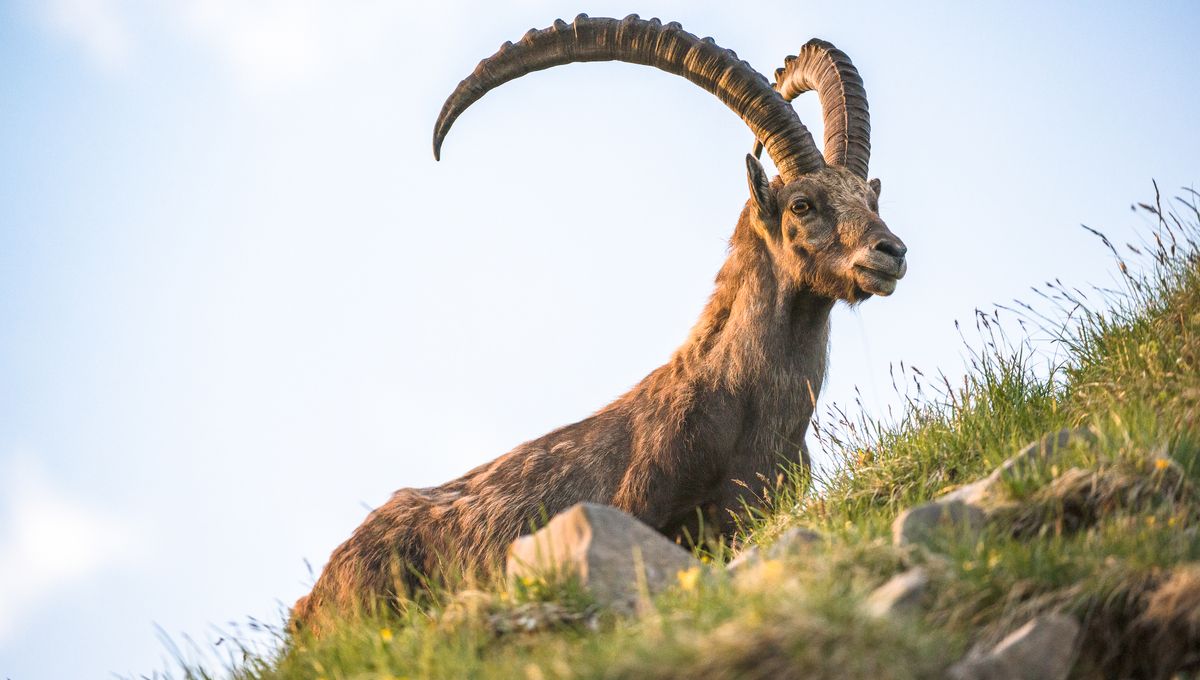
The climate crisis and the warming of the planet is having a devastating effect on the natural world and the animal species that live in it. While polar bears have been found to be at greater risk of starvation due to a lack of sea ice, another species is facing the opposite problem, being put in greater danger of predation as their behavior changes to beat temperature extremes.
Alpine ibexes (Capra ibex) living in two protected areas within the Gran Paradiso National Park in the Italian Alps were studied, as they are a cold-adapted species known to be sensitive to the effects of global warming.
Typically the ibexes feed on grasses and vegetation at lower altitudes of the mountains during the day, spending the night away from their main predator of wolves (Canis lupus) high up on the mountainside. However increasing daily temperatures have meant more time on the mountain and a switch to feeding during the cooler nighttime. While this might sound like a sensible solution it has one big problem: the wolves.
The 47 ibex were tracked using motion-sensing tracking collars between 2006 and 2019. During warmer days the ibex become less active during the day and more active at night. This put the ibex at greater risk of predation by wolves in the open grassy areas lower down the mountain, where they are less protected.
This species also exhibits a high level of sexual dimorphism, meaning the males and females of the species look very different. These differences, such as the males having horns while the females have less fat, alter their risk factors for the dangers of both overheating and predation. The team found more nocturnal activity in response to higher daily temperatures, even when the females had kids.
Given that the ibex has typically been a diurnal species, their eyesight is also more compromised by feeding at night, making them further vulnerable to wolf attacks. The team found that the goats were more active during nights that were brighter thanks to the Moon, meaning they were better able to detect predators and the benefits of foraging at night outweighed the risks.
As climate change continues to raise temperatures in this region, the ibex are likely to continue this behavior and put their survival at even greater risk.
The study is published in Proceedings of The Royal Society B: Biological Sciences.
Source Link: Climate Change Is Turning Ibex Nocturnal – But It's Putting Them In Danger